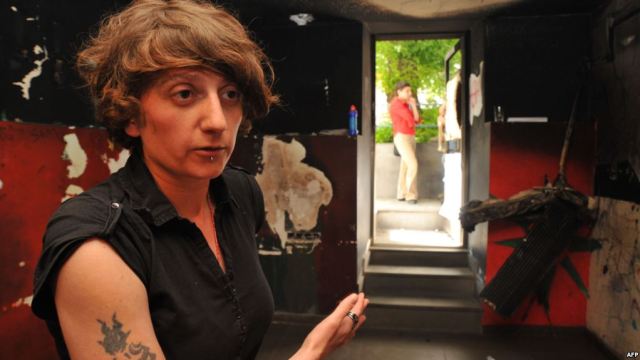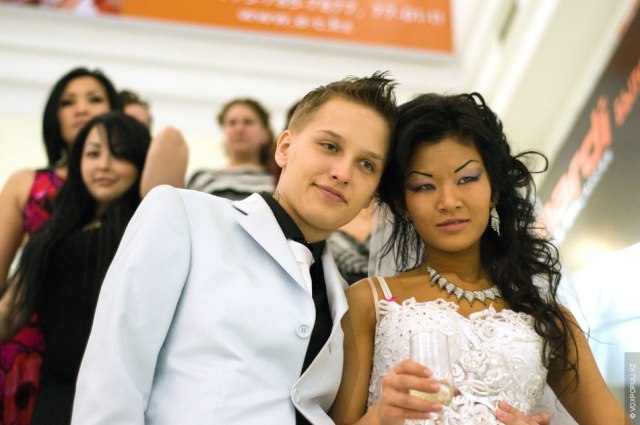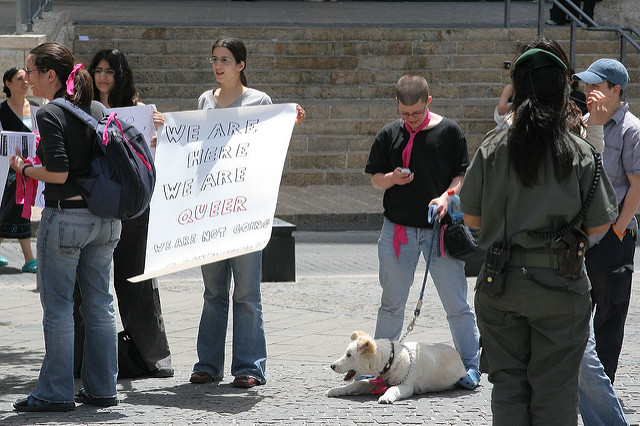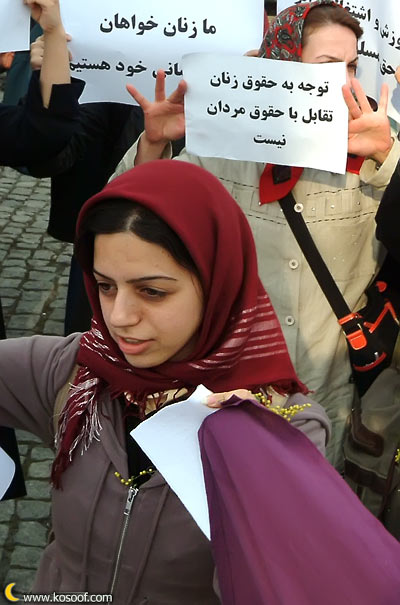Taiwan’s decision to legalize same-sex marriage in May 2017 commanded international attention, particularly due to its being one of the first Asian countries to do so. As a queer South Asian person who was born and raised in a very homophobic South East Asian country, I had grown up with the constant rhetoric of “LGBTQ is a Western colonial invention” and still have to contend with comments from the leaders of my country claiming that LGBTQ rights are antithetical to Asian cultural norms, and even fear for my livelihood as fellow LGBTQ activists and community members are oppressed, harmed, or even killed.
Taiwan’s ruling made me curious about how the news was being received by LGBTQ people across Asia. Did they too face cultural and institutional oppression against their gender and sexuality, or were their countries more accepting? Would the ruling have any impact on their livelihoods? Is Taiwan an inspiration for their leaders to consider marriage equality or LGBTQ rights overall, or will it not matter as much?
I made a list of countries in the Asian continent and researched and reached out to at least one LGBTQ activist, organization, or community member in each, including posting on region or country-specific social media groups and direct contact. Out of the countries on my list (excluding the Pacific Islands of Oceania and counting Taiwan, Macau, and Hong Kong as distinct countries), I was able to find at least one contact for 42 of them, and (at the time of writing) received 27 responses from 18 countries, as well as a couple from regional organisations. While there were significant efforts to prioritize female and non-binary interviewees, a considerable number of respondents were male, often owing to the stronger presence of out gay male activists in their local LGBTQ community. Responses came from cis and trans women, cis and trans men, and non-binary people. Some respondents are anonymous or pseudonymous by request.
The responses, while varied and distinct, often carried similar themes. While my respondents were generally supportive and happy about Taiwan’s decision, most did not think that the ruling would be as impactful on their local community as some might guess — citing insularity, lack of media attention, and/or lack of cultural similarity between Taiwan and their home countries. Some respondents felt that the ruling could be used as leverage for their local activism, while others felt that focusing on marriage equality could actually backfire in their efforts to earn the rights of LGBTQ people to exist without fear of persecution or harm. There weren’t necessarily any clear correlations between the legal status of LGBTQ people in their country and the perception of such communities in society: some of the countries with the highest rates of violence against LGBTQ people were countries that decriminalized homosexuality or never had laws against homosexuality in the first place. To be clear, affirmations of a country’s LGBTQ-inclusive legislation in this piece isn’t a referendum on or analysis of the experiences of LGBTQ people as a whole there, or the country’s stance on human rights issues in general. Marriage equality is only one piece of a complex and ever-shifting social and legal reality for LGBTQ people worldwide; to full explore more than that would take much more than one article, and even any discussion of the experiences of LGBTQ people here is necessarily only one portion of a much larger picture.
As one of my respondents, Loretto of Stonewall Japan, warned: “Coming from a Western standpoint we may be tempted to lump Asian countries together, but that would be a mistake.” Even so, it is useful to see how different countries and regions within the continent share concerns and priorities for their local LGBTQ communities and see opportunities for cross-cultural support and understanding.
Central Asia and Eurasia
Most countries in this region, except for Turkmenistan and Uzbekistan, have decriminalized homosexuality; some, such as Armenia, have even signed the 2011 United Nations joint statement on ending acts of violence and related human rights violations based on sexual orientation and gender identity. However, homophobia in the region is still extremely strong, with very little protections for LGBTQ people as well as growing intolerance from the Government and wider society.
The editorial board of the kok.team project, an LGBTQ news and community resource based in Kazakhstan, described some recent government attempts at institutional homophobia: “In 2014 Parliament tried to adopt a discriminative law on protect[ing] children against so-called ‘homosexual propaganda.’ This attempt failed because that year Kazakhstan participated in the competition for the right to hold [the] Winter Olympics. [The] international sports community protested against this law — that’s why our legislators withdrew it.” They also talked about the Members of Parliament of Kazakhstan questioning Kazakhstan Minister of Information Dauren Abayev about the Kazakhstan flag being flown at New York Pride this past June, only to be told that there are no legal measures that can be enacted against the person.
Mamikon Hovsepyan, Executive Director of Pink Armenia, thought it was “interesting” that Armenian media and extremists were “silent on this issue.” “[A] few media outlets wrote about Taiwan but there was no discussion on it,” he explains. While the Armenian Constitution limits marriage to heterosexual couples, the country recognizes all marriages performed abroad, including same-sex marriages. However, attacks against LGBTQ people and community spaces in the country, such as multiple attacks by Neo-Nazis on the lesbian-owned bar DIY Rock Club in 2012, have stirred up heated debates on “LGBTQ rights vs national interests.”

Attempts at same-sex marriage in Armenia and Kazakhstan in the past decade have garnered controversy and awareness about the plight of the local LGBTQ community. In 2006, Harutyun Zhonzhikian, the founder of the Armenian Gay and Lesbian Organization (AGLA), married Misha Meroujan (whom he met through AGLA), both making the trek down from Paris to marry at the Armenian Apostolic Church in Echmiadzin to reflect their still-strong connections to Armenian culture. In 2013 LGBTQ rights activist Vladimir Kornakovsky made headlines by organizing a lesbian wedding in Karaganda, a city in north-eastern Kazakhstan, between Kristina Chernysheva and her partner Karolina. Heartbreakingly, a year later, Chernysheva was found brutally murdered; Karolina has been detained as a suspect.

Russia was cited by all respondents as a major influence on the social-political factors affecting their local LGBTQ communities. These countries were formerly part of the Soviet Union and still hold a significant number of Russian migrants.
“For now I think we are not relevant to comment on it [since] Armenia is under the pressure of Russia these years,” said Hovsepyan. “We are too far from equal marriage recognition but let’s keep in touch and probably there will be some development in the nearest future.”
“Kazakh nationalists say it is the Russian influence — Russian colonists brought ‘homosexualism’ [to the] Kazakh steppes in [the] 18th century and before this we had no ‘homosexualists’,” says the kok.team, though a representative of Tajikistan-based organization Equal Opportunities cites Russian influence for the country’s homophobia. “Unfortunately, due to the influence of Russia on the economic, social and political life in the country, the situation of LGBTQ people is not entirely in a good position.” In 2011 Equal Opportunities collaborated on a report on crimes and structural oppression against LGBTQ people in Central Asia with Kyrgyzstan-based organization Labrys and the Sexual Rights Initiative , an international coalition focused on advancing human sexuality rights in the United Nations.
As a result, some in the region don’t even really see themselves as Asian. “We do not have any contacts and ties with the countries of Asia (even there are no flights, connections at different levels, a language barrier, religion, etc),” says Equal Opportunities. “Therefore it is difficult to say, it is possible to affirm that the changes in [other] Asia’s countries cannot affect us in Tajikistan.”
That being said, they still see opportunities for collaboration with others in the continent. “The countries of Asia can share their experience on the development and mobilization of the community, developing health programs, advocacy companies and other activities which can help to unite LGBTQ people here. How to work with governmental organizations, with journalists, etc.” Indeed, kok.team’s earlier recounting of international pressure making a difference on the Government’s attempts to institutionalize homophobia demonstrate the potential power of cross-border cooperation in making a difference for local LGBTQ rights.
Western Asia / Middle East
Coverage of the (truly) horrendous treatment of LGBTQ people in countries such as Saudi Arabia and Iran tend to build assumptions that the entirety of the region is heavily homophobic, especially due to Islam being the State religion for most of the region. However, laws related to LGBTQ people differ across the board — ranging from highly oppressive regimes to relatively open laws for queer and/or trans people.
Most notable in the region for their laws protecting LGBTQ people is Israel, which does have anti-discrimination laws and does recognize same-sex cohabitation. While Israel does not have civil marriage for couples of any gender, they do recognize marriages held abroad, including same-sex marriages. However, much like in some of the Central Asian states, some in Israel do not really consider itself as part of Asia or Asian culture.
“From my point of view as someone who knows well the political condition in my country, Israel is more positioned as European than Asian, with no relation to the geographical map. The country[‘s] goals are to position Israel as part of the free world,” says Chen Arieli, Chairperson of Israeli National LGBTQ Taskforce The Aguda, who also discusses Israel’s political system highlighting their progressive LGBTQ laws regularly in international media coverage. “It is, of course, complicated with our main Arab-Israeli conflict and the occupation, but the close relationship with the United States and to Europe [has] established Israel much more as a main Western world than anything else.” (A Palestinian LGBTQ organization has been contacted for comment but has yet to respond as of the time this article is written.)

In the rest of the Middle East, some are hopeful about Taiwan’s ruling. “Taiwan’s ruling in our favor is a huge step in the right direction and we can only dream of such a reality in the Arab world, even though we know there will always be obstacles from our wider community,” says an anonymous queer woman based in Bahrain. While Bahrain decriminalized homosexuality in 1976, LGBTQ Bahranians are still subject to immense demonisation and state-sponsored violence. “An Asian country embracing same-sex marriage gives us a great deal of hope and much needed encouragement to continue the struggle for our basic rights, not just to exist without persecution but to also marry and build families with our loved ones, instead of hiding in fear.”
Others are less optimistic. “I don’t think the ruling in Taiwan will have a tangible effect on the Middle East. I think we have a long way to go […] Changes need to be from the inside,” says Dana, a trans woman based in Jordan. Homosexuality has been decriminalized in Jordan since 1951 and gender transition was made legal in 2014.

Iranian gender and sexuality rights activist and academic Zeinab Peyghambarzadeh, who has written about bisexual erasure in the Iranian LGBTQ rights movement and who was arrested in 2007 during a protest in support of women’s rights activists on trial, brings up institutionalized homophobia as a core part of their country’s media and political landscape. “I do not have any hope that the formal law and regulations in Iran regarding LGBT rights and even women’s rights can change soon because they are an important aspect of the official ideology of the Government especially in defining this ideology in contrast with the Western modern human rights discourse. However, the Government may stop [the] execution of some discriminatory law for a while, due to internal or international political reasons.” While homosexuality carries the death penalty in Iran, gender transition is legally recognized if accompanied by medical intervention.
Jordanian Queer Muslima, a liberation theology research scholar focusing on gender, racial, and sexual liberation within Islam, questions same-sex marriage as a priority in LGBTQ liberation, even as she is happy for those celebrating the right to marry. “In my opinion, sexual liberation cannot be detangled from racial, colonialist, classist, ableist, gendered, religious liberation. I believe a focus on rulings such as these pinkwashes a movement that seeks holistic liberation in these intersecting fields of oppression.” Citing the various structural oppressions faced by LGBTQ people such as hunger, homelessness, and misogynoir, she asks: “Who decided that equal marriage was the direst demand? Did this decision come from all peoples of the community or just those privileged few? If we truly seek communal liberation, then it is imperative to speak directly to the community — not over it.”
Peyghambarzadeh discusses the priorities of Iran’s LGBTQ community: “Of course, Iran’s LGBT communities are very diverse with different priorities, but in my opinion, decriminalization of same sex sexual conduct and stopping the hate speech against LGBT community can be a priority for different groups because they play a key role in reproducing the LGBTphobic culture.”
“Today Islamic scholars, jurists, leaders, and members of communities are working in many ways to legally, academically, and socially carve a space for LGBTQIA+ peoples. We speak against the dominant discourse that says ‘Islam is heterosexual’ through work in grassroots organizations, social organizing, academia, public protest and living.”
While many may be tempted to cite Islam as the main reason for the Middle East’s institutionalized homophobia, Jordanian Queer Muslima pushes hard against this argument. She argues that before Victorian-era colonization, “Islamic discourse spoke to communities that were gendered and sexually fluid,” citing examples of Caliphates with openly gay children, poems written about bisexual men by female writers, and Islamic jurisprudence handling issues related to their queer children. “Today Islamic scholars, jurists, leaders, and members of communities are working in many ways to legally, academically, and socially carve a space for LGBTQIA+ peoples. We speak against the dominant discourse that says ‘Islam is heterosexual’ through work in grassroots organizations, social organizing, academia, public protest and living.”
Could international solidarity help LGBTQ communities in the Middle East? Peyghambarzadeh seems to think so. “Iranians have more cultural exchanges with majority Muslim countries especially the Middle Eastern ones, and their LGBT friendly media products can reduce LGBTQphobia amongst Iranians.” Jordanian Queer Muslima, however, is more cautious. “Direct and open solidarity now may be counterproductive. Openly LGBTQIA+ people are targeted by community and state alike, but simultaneously our country is homoerotic from some buried identity that has persisted since physical presence of the colonialists.” She brings up Jordanians’ affectionate gestures, such as holding hands and kissing cheeks, which are common between straight-identifying men and women that are “very very comfortable with the same sex but will never allow space for openly homosexual peoples.”
Acknowledging the work of Jordanian LGBTQ people in securing their rights, Jordanian Queer Muslima states: “What we need is the international community to support us in whichever way we deem fit. We know our immediate needs and it might now necessarily be marriage equality and that’s OK.” However, she thinks that solidarity and cooperation should be virtual, never physical, out of concerns for dangers and safety. For her, being able to find community through Tumblr helped her find her community, sparked her interest in Islamic liberatory theologies, and helped her understand that she wasn’t alone. However, she also notes that for others, the needs might be greater: “The realities of a refugee woman, a street child and a Bedouin village girl can never be the same and will not have the same needs.”







